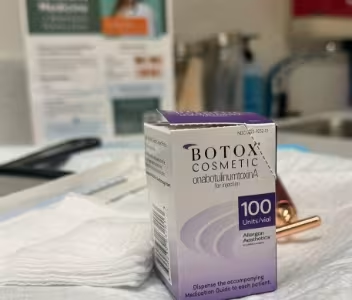Women's health encompasses various aspects, including physical, mental, and reproductive well-being. Contraceptive methods play a crucial role in allowing women to exercise control over their reproductive health. Three commonly used contraception methods are IUDs, Nexplanon, and OCPs.
Most common contraception methods:
- Intrauterine Devices (IUDs): IUDs are small, T-shaped devices that are inserted into the uterus to prevent pregnancy. They are available in hormonal and non-hormonal options. Hormonal IUDs release progestin, which thickens cervical mucus and inhibits fertilization. Non-hormonal IUDs contain copper, which creates an inhospitable environment for sperm. IUDs are highly effective, with a low failure rate, and their effects last for several years, depending on the type.
- Nexplanon: Nexplanon is a small, flexible rod that is inserted under the skin of the upper arm. It releases a progestin hormone, preventing pregnancy by inhibiting ovulation, thickening cervical mucus, and thinning the uterine lining. Nexplanon provides effective contraception for up to three years.
- Oral Contraceptive Pills (OCPs): OCPs, commonly known as birth control pills, are taken orally daily. These pills contain hormones (progestin, estrogen, or a combination) that prevent ovulation, thicken cervical mucus, and alter the uterine lining to impede implantation.
Ensuring access to contraception measures and promoting comprehensive education are essential components of women's healthcare. Access to contraception measures should be equitable and affordable, irrespective of socioeconomic status. By providing access to a range of contraceptive methods and fostering a supportive environment, women can make informed decisions and choose the contraception method that aligns with their preferences and lifestyle.
Intrauterine devices (IUDs), Nexplanon, and oral contraceptive pills (OCPs) offer diverse options for women to choose from based on their individual needs and preferences. By ensuring access, promoting education, and removing barriers, we can empower women to make informed decisions about contraception, enabling them to lead fulfilling lives and contribute to their overall well-being. Emphasizing the importance of comprehensive care and contraceptive measures is a vital step toward achieving gender equality
Preventative Measures & Screenings
There are two important regular screening that women can actively participate in preventive care, detect potential issues early, and make informed decisions about their well-being.
Pap smears start at age 21 regardless of sexual activity and can help in monitoring and managing existing conditions, such as human papillomavirus (HPV) infections, which are a significant risk factor for cervical cancer. After the initial screening, most guidelines recommend repeat Pap smears every three years for women aged 21 to 65 who have normal results.
Another screening is breast cancer screening which is done via mammogram starting at age 40. It involves low-dose X-rays of the breast tissue to detect any abnormalities. Mammograms can detect tumors that are too small to be felt, increasing the chances of early detection. Regular mammograms are recommended for women aged 40 and older, although screening guidelines may vary depending on factors such as family history and individual risk factors.
Comprehensive women's healthcare includes empowering women with contraception measures and promoting preventative screenings that enable all women to take control of their reproductive health. By ensuring access, promoting education, and removing barriers, we can empower women to make informed decisions enabling them to lead fulfilling lives and contribute to their overall well-being.
Women's Health at Brentwood Primary Care with Dr. Shreya Khatri
Brentwood Primary Cares' board-certified primary care physician, Dr Shreya Khatri specializes in women’s health. If you have any questions or would like to schedule a consultation, contact brentwoodprimarycare.com or call 925-471-4223 today.














